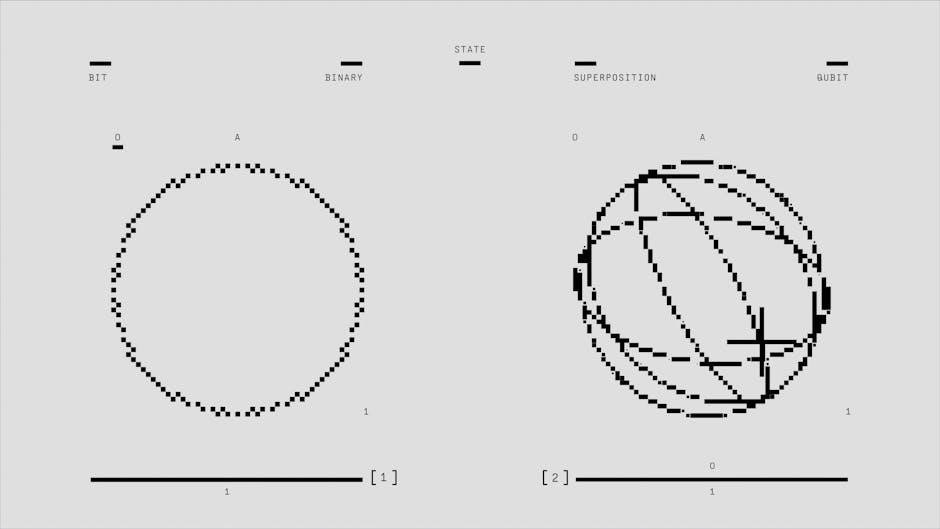Saxon Math 7/6 is a comprehensive math program designed for middle school students, focusing on algebraic reasoning and geometric skills․ Created by Stephen Hake and John Saxon, it uses a spiral approach to gradually build math concepts through continuous review and practice, making it ideal for homeschooling and traditional classroom settings․ This program is part of the Robinson Curriculum and is known for its structured, incremental development of math skills, preparing students for higher-level math courses like pre-algebra and algebra․
1․1 Overview of Saxon Math 7/6
Saxon Math 7/6 is a comprehensive math program designed for 6th or 7th-grade students, emphasizing algebraic reasoning and geometric skills․ It uses a spiral approach, introducing new concepts incrementally and reviewing previously taught material continuously․ The curriculum covers functions, integers, exponential expressions, prime factorization, and geometric measurements․ The Saxon Math 7/6 PDF is structured with clear lessons, practice problems, and assessments to ensure mastery․ Ideal for homeschooling, it builds a strong foundation for higher-level math, preparing students for pre-algebra and beyond․
1․2 Importance of Saxon Math 7/6 in Middle School Education
Saxon Math 7/6 plays a crucial role in middle school education by providing a solid foundation in algebraic reasoning and geometric skills․ Its spiral approach ensures students gradually master concepts through continuous review and practice, reducing learning gaps․ The program’s structured format, with clear lessons and practice problems, helps students build confidence and proficiency․ By focusing on incremental development, it prepares students for higher-level math, making it an essential tool for both homeschooling and traditional classrooms․ Its effectiveness lies in its ability to adapt to diverse learning needs while maintaining academic rigor․
1․3 Brief History and Development of Saxon Math 7/6
Saxon Math 7/6 was developed by Stephen Hake and John Saxon, a renowned mathematician and educator, as part of the Saxon Math series․ The program was created to address the need for a structured, incremental math curriculum․ Initially introduced in the 1980s, it evolved over time with contributions from educators like Stephen Hake․ The 7/6 edition specifically targets middle school students, focusing on algebraic reasoning and geometric skills․ Its development emphasizes a spiral approach, building on previously taught concepts to ensure mastery and prepare students for advanced math courses․

Key Features of Saxon Math 7/6
Saxon Math 7/6 features a spiral approach, incremental concept development, and continuous review of previously taught material․ Its structured PDF format ensures a clear and organized learning experience․
2․1 Spiral Approach to Learning

The spiral approach in Saxon Math 7/6 introduces new math concepts incrementally, building on previously learned material․ This method ensures students master each skill before moving forward, minimizing gaps in understanding․ By continuously reviewing past concepts, the program reinforces retention and provides a strong foundation for advanced topics․ This structured approach is particularly effective for students transitioning from Saxon Math 6/5, as it maintains consistency and depth in their mathematical development․
2․2 Incremental Development of Math Concepts
Saxon Math 7/6 employs incremental development to introduce new math concepts in a step-by-step manner․ Each concept builds upon previously learned material, ensuring a solid foundation․ This approach prevents learning gaps by breaking complex ideas into manageable parts․ Students gradually progress, mastering each skill before advancing․ The incremental method aligns with the spiral approach, reinforcing previously taught concepts․ This structured development ensures readiness for higher-level math, making it an effective tool for middle school education and homeschooling environments․
2․3 Continuous Review of Previously Taught Material
Saxon Math 7/6 incorporates continuous review of previously taught material, ensuring long-term retention and a strong foundation․ This spiral approach interweaves earlier concepts with new lessons, preventing learning gaps․ By regularly revisiting topics, students reinforce their understanding and build confidence․ The program’s structure ensures that skills are not forgotten, making it easier to progress to more complex material․ This method is particularly effective for middle school students, as it supports seamless transitions to higher-level math courses like pre-algebra and algebra․
2․4 Structure of the Saxon Math 7/6 PDF
The Saxon Math 7/6 PDF is a comprehensive textbook designed for 6th or 7th-grade students․ It features a clear layout with 396 pages, organized into lessons, investigations, and practice problems․ Each lesson introduces new concepts incrementally, while investigations provide hands-on activities for deeper understanding․ The PDF includes functions, integers, and prime factorization, with continuous review to reinforce learning․ Its structured format ensures students build a strong math foundation, making it an essential resource for homeschooling and traditional classrooms alike․ The hardback edition is durable and easy to navigate․

Target Audience for Saxon Math 7/6
Saxon Math 7/6 is designed for middle school students in grades 6-7, those transitioning from Saxon 6/5, and is ideal for homeschooling environments and classrooms․
3․1 Grade Level Suitability
Saxon Math 7/6 is specifically designed for students in grades 6 or 7, ensuring a smooth transition from earlier Saxon programs like Saxon Math 6/5․ Its structured approach makes it suitable for both homeschooling and traditional classroom settings․ The curriculum is tailored to meet the developmental needs of early adolescents, providing a solid foundation in algebraic reasoning and geometric skills․ By focusing on incremental development, it prepares students for higher-level math courses while reinforcing previously learned concepts․ This makes it an ideal choice for students progressing through the Saxon math sequence․
3․2 Students Transitioning from Saxon Math 6/5
Students who have successfully completed Saxon Math 6/5 are well-prepared to transition into Saxon Math 7/6․ The program builds directly on the skills and concepts introduced in Saxon 6/5, ensuring a seamless progression․ The spiral approach continues, with incremental development of new material and regular review of previously taught concepts․ This structure helps students maintain mastery of foundational skills while introducing more complex topics like functions, integers, and exponential expressions․ The familiarity of the teaching method eases the transition, making it an ideal next step in the Saxon math sequence․
3․3 Homeschooling Applications
Saxon Math 7/6 is highly suitable for homeschooling due to its structured, self-paced approach․ The spiral method ensures continuous review and incremental skill development, making it ideal for independent learning․ Homeschool parents appreciate the clear instructions and comprehensive practice problems, which allow students to work at their own pace․ Additional resources, such as video lessons and online forums, provide further support for both students and parents․ This curriculum is widely used in homeschool settings, offering a reliable and effective math education solution for middle school students․

Curriculum Structure and Content
Saxon Math 7/6 features 120 lessons and 12 investigations, blending hands-on activities with structured practice․ The curriculum integrates algebraic reasoning and geometric skills, supported by regular assessments and reviews․
4․1 Lessons and Investigations in Saxon Math 7/6
Saxon Math 7/6 includes 120 lessons and 12 investigations, providing a balanced mix of structured learning and hands-on activities․ Lessons are designed with clear explanations, examples, and practice problems, ensuring a gradual mastery of concepts․ Investigations are comprehensive activities that often span a full class period, incorporating their own set of questions to deepen understanding․ This combination of lessons and investigations creates an engaging and effective learning experience, aligning with the program’s spiral approach to reinforce previously taught material while introducing new skills․
4․2 Practice Problems and Assessments
Saxon Math 7/6 includes a wide range of practice problems designed to reinforce new and previously taught concepts․ These problems are carefully structured to ensure mastery of skills through consistent review and application․ Assessments are integrated throughout the program to evaluate student progress and identify areas needing additional focus․ The practice problems and assessments work together to build confidence and fluency, ensuring students are well-prepared for more advanced math courses․ This structured approach aligns with the program’s spiral methodology, promoting long-term retention and understanding․
4․3 Integration of Algebraic Reasoning and Geometric Skills
Saxon Math 7/6 seamlessly integrates algebraic reasoning and geometric skills, providing a balanced approach to math education․ Students explore functions, coordinate graphing, and exponential expressions, which strengthen algebraic thinking․ Geometric concepts, such as area calculations and spatial reasoning, are introduced to enhance problem-solving abilities․ This integration ensures a cohesive understanding of math principles, preparing students for advanced topics like pre-algebra and algebra․ The curriculum’s structured format allows for a smooth transition between algebraic and geometric problem-solving, fostering a deep and interconnected grasp of mathematics․

Topics Covered in Saxon Math 7/6
Saxon Math 7/6 covers essential topics such as functions, coordinate graphing, integers, exponential expressions, prime factorization, and decimal operations․ It also includes lessons on the area of a triangle and capacity measurements, providing a comprehensive foundation for middle school math education․
5․1 Functions and Coordinate Graphing
Saxon Math 7/6 introduces students to functions and coordinate graphing, essential skills for algebraic reasoning․ Lessons explore defining and evaluating functions, identifying domains and ranges, and graphing points on a coordinate plane․ Activities include plotting lines, identifying patterns, and interpreting graphs, providing a strong foundation for higher-level math․ The curriculum uses a spiral approach, reinforcing concepts through practice problems and investigations, ensuring mastery of these critical skills before advancing to more complex topics like pre-algebra and algebra․
5․2 Integers and Exponential Expressions
Saxon Math 7/6 covers integers and exponential expressions, teaching students to perform operations with integers, including addition, subtraction, multiplication, and division․ The curriculum introduces exponents, focusing on evaluating and simplifying exponential expressions․ Lessons emphasize understanding the properties of integers and exponents, such as commutative and associative properties, and applying these concepts to solve real-world problems․ This foundational knowledge prepares students for advanced algebraic manipulations and higher-level math, reinforcing skills through structured practice and incremental development․
5․3 Prime Factorization and Decimal Operations
Saxon Math 7/6 introduces prime factorization, teaching students to break numbers into their prime components and apply this skill to simplify mathematical operations․ The program also emphasizes decimal operations, including addition, subtraction, multiplication, and division with decimals․ Lessons incorporate real-world applications, such as measurements and financial calculations, to reinforce understanding․ The curriculum’s spiral approach ensures continuous review of these concepts, helping students master foundational math skills necessary for higher-level math, including algebra and geometry․
5․4 Area of a Triangle and Capacity Measurements
Saxon Math 7/6 teaches students to calculate the area of a triangle using the formula ( rac{1}{2} imes ext{base} imes ext{height})․ It also covers capacity measurements, focusing on understanding and converting between units such as gallons, quarts, pints, and cups․ Practical applications are emphasized, helping students apply these concepts to real-world scenarios․ The curriculum integrates these topics with algebraic reasoning and geometric skills, ensuring a well-rounded math foundation․ Continuous review reinforces mastery of these essential math skills․

Benefits of Using Saxon Math 7/6
Saxon Math 7/6 provides a strong foundation for higher math, effectively prepares students for pre-algebra, and enhances problem-solving skills through its structured, incremental approach and continuous review system․
6․1 Building a Strong Foundation for Higher Math
Saxon Math 7/6 lays a robust groundwork for advanced math by introducing essential concepts like functions, integers, and exponential expressions․ Its spiral approach ensures mastery through continuous review and incremental development, reinforcing critical skills such as the order of operations and prime factorization․ By focusing on algebraic reasoning and geometric principles, the curriculum equips students with the confidence and understanding needed to excel in higher-level courses, making it a valuable tool for long-term academic success in mathematics․
6․2 Effective Preparation for Pre-Algebra and Algebra
Saxon Math 7/6 is specifically designed to prepare students for the challenges of pre-algebra and algebra․ By introducing foundational concepts such as functions, coordinate graphing, and exponential expressions, the curriculum ensures a smooth transition to higher-level math․ The program’s incremental approach builds confidence and mastery, while its focus on algebraic reasoning and problem-solving skills equips students with the tools they need to succeed in future math courses․ This structured preparation helps students approach pre-algebra and algebra with clarity and confidence․

6;3 Improved Problem-Solving Skills
Saxon Math 7/6 emphasizes the development of critical thinking and problem-solving abilities through its structured approach․ By introducing concepts like functions, integers, and exponential expressions, students learn to approach math logically․ The curriculum’s incremental development and continuous review ensure a deep understanding of each concept, enabling students to tackle complex problems with confidence․ Hands-on activities and investigations further enhance critical thinking, preparing students to apply mathematical reasoning to real-world scenarios effectively․ This focus on problem-solving skills equips students for long-term academic success․

Resources and Support for Saxon Math 7/6
Saxon Math 7/6 offers various resources, including video lessons, online forums, and study guides․ These tools provide additional support for students and homeschooling parents, ensuring success․
7․1 Availability of Video Lessons and Tutorials
Video lessons and tutorials for Saxon Math 7/6 are widely available, offering students additional support․ Platforms like Nicole the Math Lady provide detailed video explanations, while DIVE lectures by Dr․ Shormann offer alternative teaching perspectives․ These resources are especially helpful for visual learners and those needing extra clarification․ Many tutorials are designed to align with specific textbook editions, ensuring compatibility and effectiveness․ They cover lessons, practice problems, and investigations, making complex concepts more accessible and fostering a deeper understanding of the material․ These tools are invaluable for both homeschooling parents and independent learners․
7․2 Online Communities and Forums for Support
Online communities and forums provide invaluable support for students and educators using Saxon Math 7/6․ Websites like Applied Scholastics Online Academy and dedicated Saxon Math 7/6 forums offer spaces to discuss challenges, share tips, and access additional resources․ These platforms often feature active discussions, shared study materials, and expert advice․ Many communities include homeschooling parents and experienced educators who offer insights and solutions․ Participating in these forums fosters collaboration and helps users overcome obstacles, making the learning experience more engaging and effective for everyone involved․
7․4 Additional Study Guides and Practice Materials
Supplemental resources for Saxon Math 7/6 include detailed study guides, practice workbooks, and online materials․ The Homeschool Packet by Stephen Hake offers course planning tips, fact practice answers, and test solutions․ Video lessons and tutorials, such as those from Nicole the Math Lady, provide visual explanations․ Additionally, DIVE video lectures by Dr․ Shormann accompany the 4th edition, offering alternative teaching perspectives․ These resources enhance understanding, reinforce concepts, and prepare students for more advanced math․ They are especially useful for homeschooling families seeking comprehensive support beyond the textbook․
Saxon Math 7/6 is a well-structured program that effectively builds foundational math skills through its spiral approach․ Its incremental development and continuous review ensure long-term retention and preparedness for higher-level math, making it a valuable tool for middle school education and homeschooling․
8․1 Summary of Saxon Math 7/6’s Role in Math Education

Saxon Math 7/6 plays a pivotal role in middle school math education by providing a structured, incremental approach to learning․ Its spiral methodology ensures continuous review of previously taught concepts, reinforcing retention and mastery․ Designed for students transitioning from Saxon Math 6/5, it builds foundational skills in algebraic reasoning and geometric concepts․ The program is widely used in both traditional classrooms and homeschooling, offering a comprehensive curriculum that prepares students for higher-level math courses such as pre-algebra and algebra․ Its effectiveness lies in its clear, logical progression of math concepts․
8․2 Final Thoughts on the Effectiveness of Saxon Math 7/6
Saxon Math 7/6 is widely regarded as an effective math program due to its systematic, spiral approach to learning․ By introducing concepts incrementally and reviewing them continuously, it ensures a deep understanding and retention of math skills․ Its focus on algebraic reasoning, geometric skills, and practical problem-solving makes it an excellent preparation for higher-level math courses․ The program’s structured format, including lessons, investigations, and practice problems, caters to various learning styles, making it highly suitable for both homeschooling and traditional classroom settings․ Its proven track record and positive feedback from educators and students underscore its effectiveness in math education․

